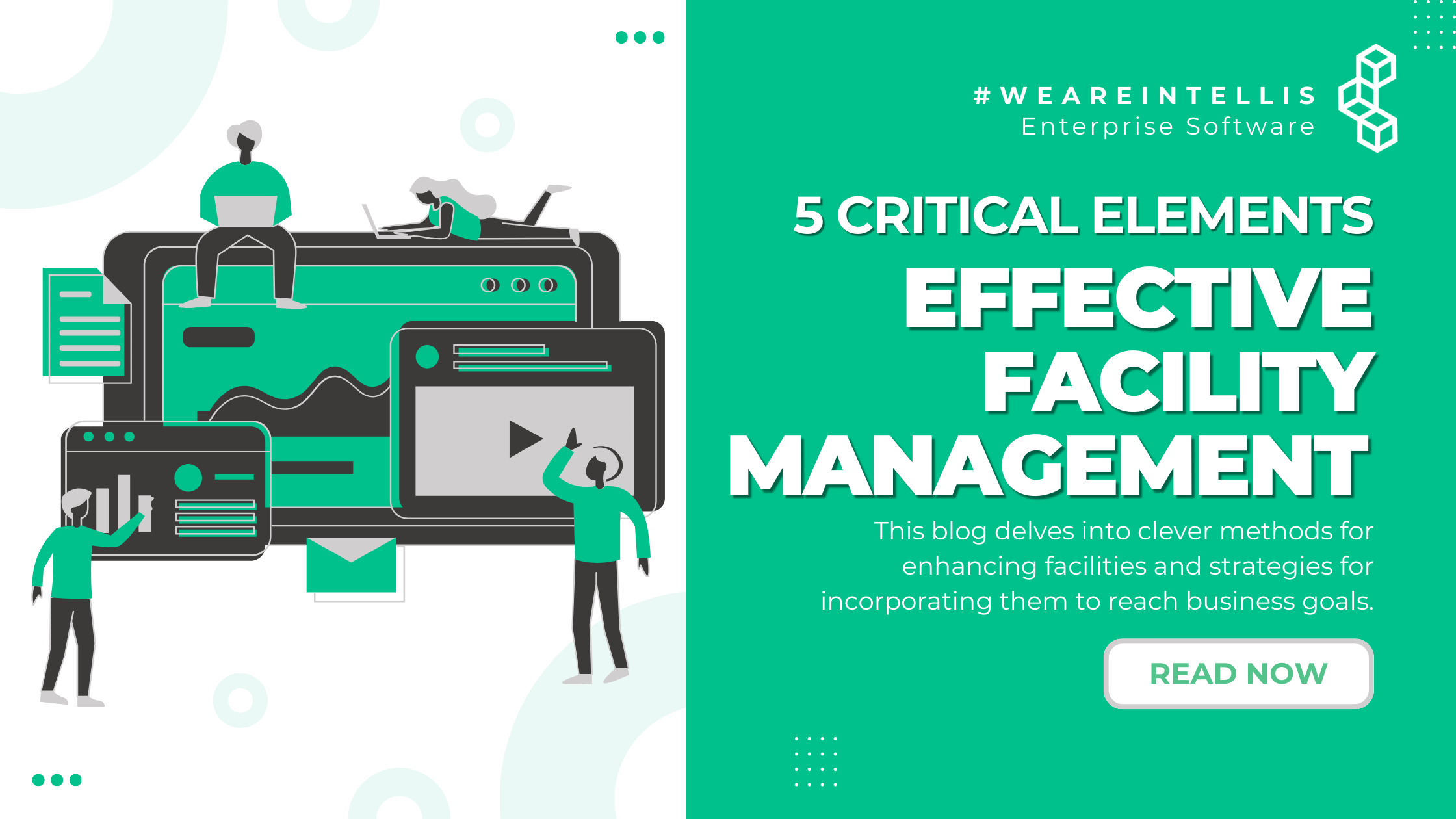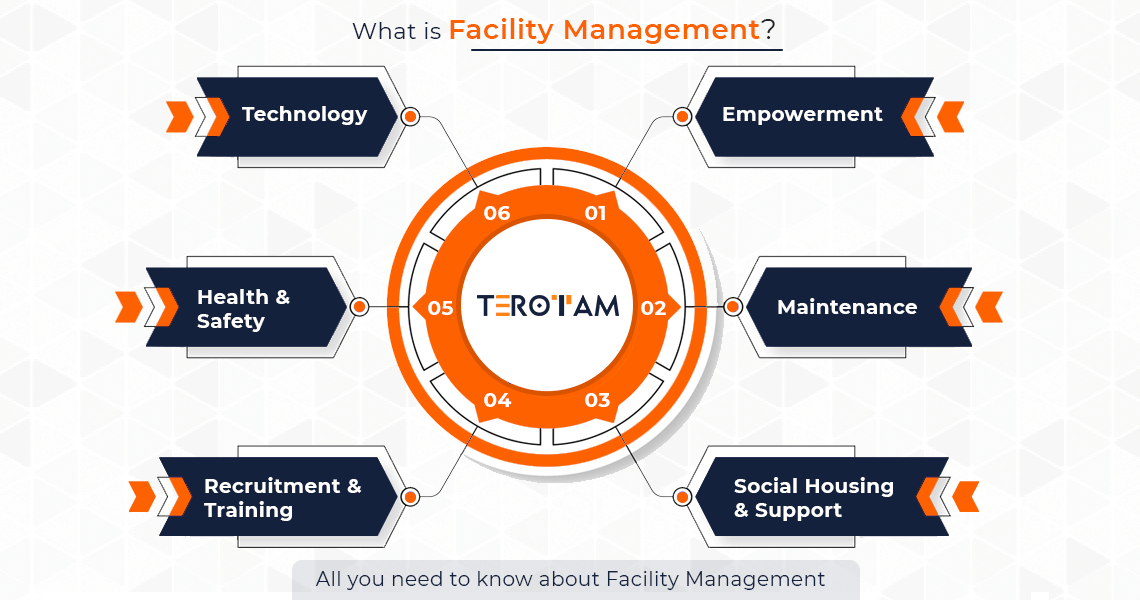Key Fads Forming the Future of Facility Management in 2024
As we look ahead to 2024, the landscape of center management is positioned for considerable improvement, driven by numerous essential trends. The assimilation of wise building technologies and a shift in the direction of data-driven decision-making promise to enhance operational efficiency while prioritizing sustainability in technique.
Smart Building Technologies

Smart building innovations encompass a large variety of systems, including smart lighting, cooling and heating controls, and protection systems. By incorporating these systems, center supervisors can keep track of and adjust parameters in real-time, causing substantial decreases in power waste and functional prices. For circumstances, smart sensing units can detect occupancy levels and change illumination and temperature level accordingly, making sure that power is only utilized when essential.
In addition, these technologies assist in improved data collection, enabling organizations to track usage patterns and recognize possibilities for additional improvements. The execution of clever structure innovations not just adds to sustainability goals but likewise creates much healthier workplace that can enhance staff member efficiency and fulfillment.
As we move right into 2024, the fostering of clever structure technologies will likely increase, showing a broader shift towards even more intelligent, receptive, and sustainable center management methods.
Data-Driven Decision Making
Significantly, organizations are leveraging data-driven choice making to enhance center monitoring methods. By utilizing information analytics, facility managers can acquire actionable insights that significantly enhance functional efficiency and source allowance. The combination of innovative technologies, such as IoT sensing units and real-time surveillance systems, enables the collection of large quantities of data on structure efficiency, occupancy rates, and energy intake.
This wealth of info enables center managers to recognize fads, forecast upkeep needs, and proactively address problems prior to they escalate. Predictive analytics can forecast devices failings, reducing downtime and fixing costs. Furthermore, data visualization devices promote far better communication among stakeholders, making sure that educated choices are made collaboratively.
Moreover, data-driven approaches boost tactical planning by allowing facility managers to evaluate the effectiveness of present methods and make notified options relating to investments in innovation or infrastructure. As organizations progressively focus on operational excellence, data-driven choice production is positioned to end up being a foundation of successful facility administration methods in 2024 and past. Eventually, the ability to leverage information properly will empower organizations to create more efficient, effective, and resistant facilities.
Sustainability and Eco-friendly Practices
The emphasis on data-driven choice making normally lines up with the expanding emphasis on sustainability and green practices within center administration. As organizations progressively prioritize ecological obligation, facility supervisors are leveraging analytics to enhance resource usage, decrease waste, and reduce carbon footprints. This strategic strategy allows the integration of energy-efficient systems, such as LED lighting, wise a/c controls, and sustainable power resources into center operations.
In addition, the application of lasting methods extends past energy usage. Facility supervisors are promoting and taking on green materials recycling initiatives to develop a round economic climate within their centers. This not only improves the ecological profile of the company however additionally fosters a society of sustainability amongst workers.
Conformity with environmental laws is one more critical facet driving the adoption of green techniques. By utilizing data analytics, center supervisors can keep track of compliance metrics and determine locations for improvement, making sure adherence to neighborhood and this content international sustainability criteria.
Hybrid Work Designs
A substantial change towards hybrid work versions is reshaping the landscape of facility administration in 2024. This paradigm integrates in-office and remote work, necessitating a reevaluation of area use, source allotment, and worker interaction approaches. Organizations are increasingly recognizing the importance of adaptable workspaces that accommodate diverse needs and preferences.
Center managers have to adapt by applying versatile workplace layouts that support joint efforts while supplying areas for focused work. This consists of the integration of innovation to facilitate seamless interaction and collaboration amongst remote and in-office workers. Smart structure solutions, furnished with analytics and sensing units, enable real-time tracking of space usage, enabling companies to optimize their settings effectively.
Furthermore, crossbreed work models stress the demand for reliable center administration that focuses on staff member experience. In significance, the hybrid work model is changing center monitoring, urging a positive method to meet the evolving needs of the workforce.
Improved Resident Wellness
As companies accept hybrid work designs, an enhanced concentrate on resident wellness is coming to be essential to facility monitoring approaches. Facility Management. This change recognizes that a satisfied and healthy and balanced workforce directly influences efficiency and retention rates. Facility managers are currently focusing on settings that promote mental and physical well-being, integrating components such as all-natural illumination, biophilic design, and obtainable wellness sources

Technology plays a critical duty in this advancement. Smart structure systems can check ecological aspects and change setups in real-time, making certain optimum convenience levels - Facility Management. Additionally, feedback mechanisms, such as tenancy sensing units and staff member surveys, allow facility supervisors to continuously fine-tune wellness efforts based on passenger requirements.

Conclusion
In 2024, the future of center monitoring will certainly be dramatically influenced by the combination of clever structure modern technologies and data-driven decision-making, fostering enhanced operational efficiency. Sustainability efforts will certainly focus on environment-friendly practices, while the introduction of crossbreed work models will require adaptable office styles. An increased emphasis on owner health via advanced Heating and cooling systems and biophilic style will certainly add to much healthier job settings. These fads jointly emphasize the evolving landscape of try these out center monitoring in response to modern obstacles and possibilities.
Center supervisors are advertising and taking on environment-friendly materials recycling efforts to create a circular economy within their centers.A substantial change towards hybrid job designs is reshaping the landscape of center administration in 2024.Furthermore, crossbreed work models stress the requirement for effective center administration that prioritizes worker experience.As organizations welcome hybrid work versions, an increased emphasis on passenger wellness is becoming indispensable to facility monitoring methods.In 2024, the future of facility administration will certainly be considerably affected by the combination of clever building modern technologies and data-driven decision-making, promoting boosted operational efficiency.
Comments on “Facility Management for Commercial Structures-- A Full Review”